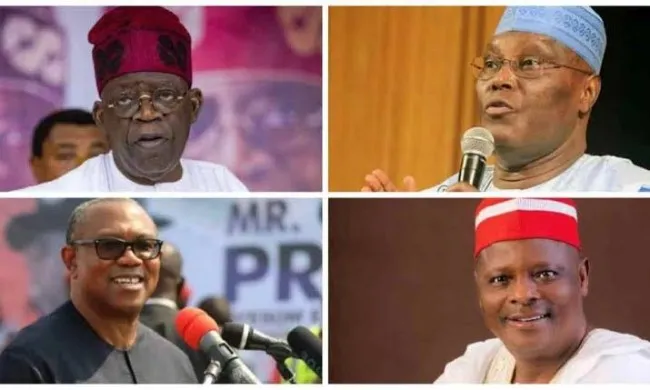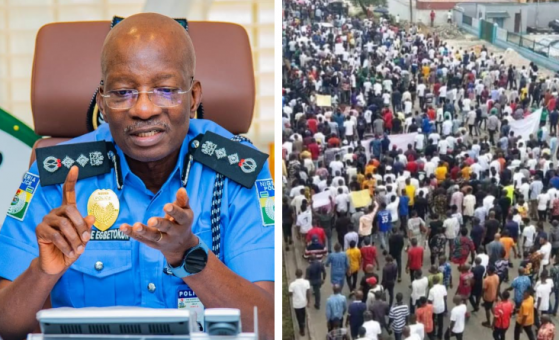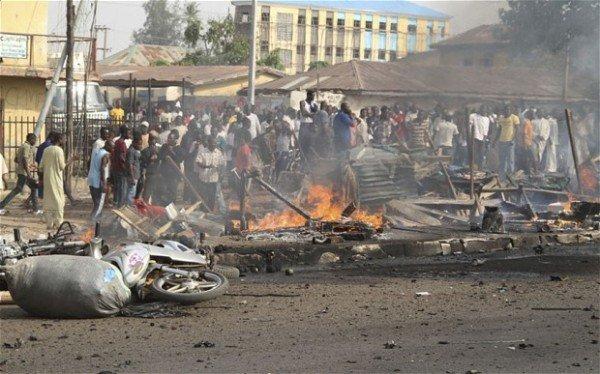The National Democratic Institute and International Republican Institute (NDI/IRI) on Friday predicted a runoff in the 2023 presidential election with the emergence of Labour Party’s presidential candidate, Peter Obi and his New Nigeria Peoples Party (NNPP) rival, Rabiu Kwankwaso, as major forces in the race.
IRI and NDI also said if the presidential election turned out in a runoff manner, the development will be adding complexity to the 2023 elections.
Briefing journalists in Abuja, the Regional Director, Central and West Africa, NDI, Christopher Fomunyoh, said the 2023 elections present a significant opportunity to consolidate Nigeria’s democracy.
Fomunyoh also said the 2022 Electoral Act passed in May, enjoyed wide stakeholder support and has elevated public confidence in the Independent National Electoral Commission (INEC’s) commitment to deliver democratic elections in 2023.
He added that by receiving funds and organizing party primaries earlier, INEC is better positioned than in past elections to take on the logistical and administrative arrangements necessary to organize elections for 85 million registered voters.
Fomunyoh further said the 2022 Ekiti and Osun gubernatorial elections, the first elections held since the electoral law was passed, demonstrated the positive impact of initiatives implemented by INEC since 2019 to improve results transparency, including the introduction of the INEC Result Viewing Portal (IReV) and elimination of voting points.
He stated that other improvements included the adoption and proper configuration of the Bimodal Voter Accreditation System (BVAS) for voter accreditation, which has quickened the voting process and reduced tensions in polling units.
Fomunyoh however said the recent surge in voter registration numbers and increased voter turnout in the 2022 Osun polls, especially among young people, point to a renewed interest in political participation among Nigerians.
“However, there are questions about whether the 2022 Electoral Act will be fully implemented and whether political parties will take advantage of this increased enthusiasm to engage Nigerians on issues that matter to them. There are also questions about whether these new technologies — IReV and BVAS – will perform at the same level when scaled up for the national elections.The statement read: “The 2023 elections are a departure from some of the political dynamics that defined previous polls. For the first time since 2007, the presidential election will be an open contest with no incumbent.
“The ruling All Progressives Congress selected former Lagos governor, Bola Tinubu, as its flagbearer. Former Vice President and 2019 presidential candidate, Atiku Abubakar, will contest on the ticket of the Peoples Democratic Party.
“However, the emergence of Peter Obi — former Anambra State governor and presidential candidate for the Labour Party — and Rabiu Kwankwaso — former Kano governor and presidential candidate for the New Nigeria People’s Party — as viable ‘Third Forces’ has excited many young Nigerians. If a third party draws sufficient support, a runoff presidential election could be a real possibility for the first time since the transition to democracy, adding complexity to the 2023 elections.”
The IRI and NDI further said that while there have been some positive changes since the 2019 elections, stakeholders with whom the delegation met, expressed concerns about the direction of the country.
“Confidence in the government and elections has declined over the past 10 years, as exemplified by the #EndSARS movement that gained traction in 2020 to protest security forces abuses. In addition, insecurity has deepened, spreading to every corner of the country. Extremist and sectarian violence continues to spread, banditry and criminality are endemic, separatist elements are gaining traction, and informal security forces are proliferating. This intensifying violence takes place against a backdrop of increasing religious and regional division permeating the political discourse. If the 2023 polls fail to improve upon past elections, Nigerians may lose faith in the ability of democracy to deliver”, the IRI and NDI stated.
Speaking on electoral reform, a member of the delegation, Bernadette Lahai, said if fully implemented, there is broad consensus among Nigerians that the 2022 Electoral Act will significantly enhance the credibility of electoral processes.
“The Act clarifies electoral timelines, allows for the use of technology in voting and collation processes, and increases the transparency of results. Other improvements include requiring the election budget to be released to INEC at least one year in advance, granting INEC wide discretionary powers, defining overvoting based on the number of accredited as opposed to number of registered voters, and limiting circumstances under which political parties can substitute candidates.
“INEC’s initiatives to deregister political parties and increase the number of polling units have also reduced some complexities of voting seen in past elections. Experts noted that the widely supported National Electoral Offenses Commission Bill could pass before the 2023 elections, but there may not be enough time to operationalize the bill before the polls”, Lahai said.
On the transparency of election results, Lahai said the 2022 Electoral Act mandated INEC to maintain a database of publicly available election results.
“To comply with this measure and enhance the transparency of results, INEC is now requiring polling unit-level officials to transmit photos of the results posters so that they can be uploaded on the IReV website. The IReV was commended by nearly all stakeholder groups with whom the delegation met because polling unit-level results are made available to the public in real time. Citizen observer groups noted, however, that the photos uploaded to IReV are not always legible, available in due time, or in a format that can be digitally analyzed.
“Observer groups are also advocating for the expansion of IReV to include images of registration area (RA), LGA, and state level results forms. Stakeholders hope that adding these tools will increase confidence in the credibility of the results; however, concerns remain about whether the IReV will work under the strain of a national election.
“The delegation also commends INEC for disaggregating voter turnout by the number of permanent voter cards (PVCs) collected and by registered voters for each LGA and polling unit for the Osun election”, Lahai added.




